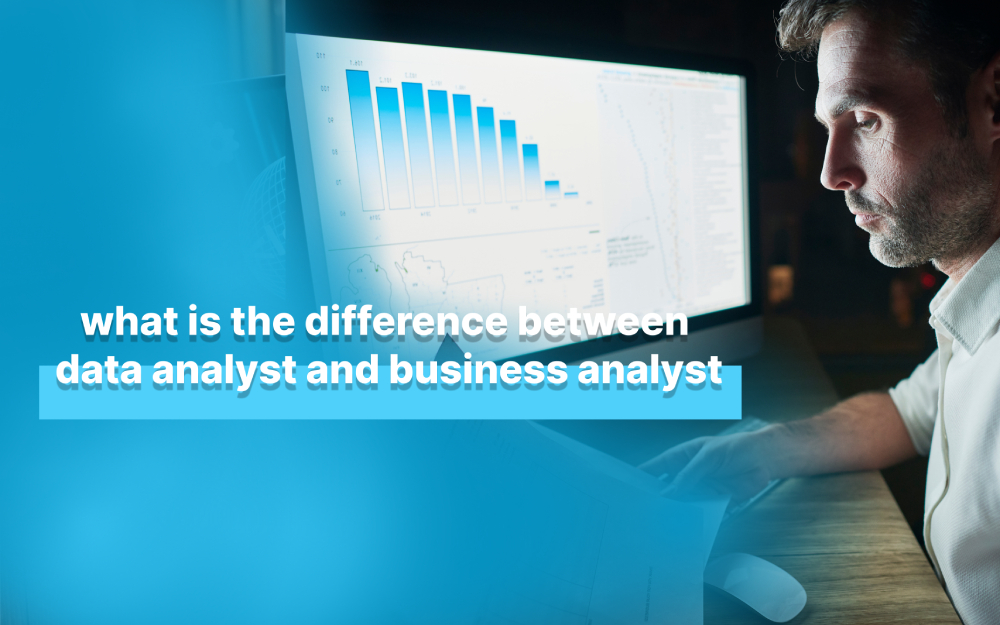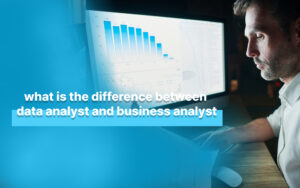What is a Scrum Master? In the realm of agile project management, the role of the Scrum Master is pivotal. Scrum Masters ensure that Scrum—a popular agile framework for managing complex projects—is understood and...
How do I become an iOS developer?
How do I become an iOS developer? The world of mobile apps is booming, and iOS apps are at the forefront of innovation and design. If you've ever dreamt of turning your ideas into reality and building the next...
What is system administration?
What is System Administration? System administration is a crucial aspect of managing and maintaining the IT infrastructure of an organization. It involves a wide range of tasks and responsibilities aimed at...
php developer job description
php developer job description In the ever-evolving landscape of web development, PHP continues to hold a prominent place. As one of the most widely used server-side scripting languages, PHP powers millions of websites...

What is the difference between data analyst and business analyst?
What is the difference between data analyst and business analyst?
In today’s data-driven business landscape, the roles of Data Analysts and Business Analysts have gained significant prominence. While both positions involve working with data and supporting decision-making processes, they have distinct focuses and responsibilities. In this blog, we will delve into the key differences between Data Analysts and Business Analysts, shedding light on their roles, skill sets, and the value they bring to organizations.
1. Role and Responsibilities:
Data Analyst:
Data Analysts are responsible for collecting, analyzing, and interpreting data to uncover insights and support data-driven decision-making. Their primary focus is on data manipulation, exploration, and visualization. Data Analysts work with large datasets, apply statistical techniques, and use analytical tools to identify patterns, trends, and correlations that can inform business strategies. They also develop reports and dashboards to present data findings to stakeholders.
Business Analyst:
Business Analysts play a crucial role in understanding business processes, identifying areas for improvement, and proposing solutions to enhance efficiency and profitability. They collaborate with stakeholders to gather, document, and analyze business requirements. Business Analysts bridge the gap between business needs and technology solutions by translating requirements into functional specifications for technical teams. They also facilitate communication and collaboration between business users and technical teams throughout the project lifecycle.
read more : What’s the difference between ux and ui design
2. Focus and Skill Set:
Data Analyst:
Data Analysts focus primarily on data-related tasks and possess strong quantitative and analytical skills. Their skill set typically includes:
- Proficiency in data querying and manipulation using SQL or other programming languages.
- Knowledge of statistical analysis and data visualization tools like R, Python, or Tableau.
- Familiarity with data cleaning, transformation, and validation techniques.
- Understanding of data modeling and database concepts.
- Ability to derive meaningful insights from data and present findings to stakeholders.
- Strong problem-solving and critical-thinking skills.-
Business Analyst:
Business Analysts have a broader focus encompassing business processes, requirements gathering, and solution design. Their skill set typically includes:
- Proficiency in requirements elicitation and documentation techniques.
- Knowledge of business process modeling and analysis.
- Ability to analyze and interpret complex business data.
- Strong communication and interpersonal skills.
- Familiarity with project management methodologies and tools.
- Understanding of business strategy and domain knowledge.
- Ability to facilitate meetings, workshops, and negotiations.
3. Domain Expertise:
Data Analyst:
Data Analysts often specialize in data-driven domains such as marketing analytics, financial analysis, or operational analysis. They develop expertise in specific tools, techniques, and industry-specific data sources to extract insights and answer business questions using data.
read more : Full Stack Developer vs Software Developer
Business Analyst:
Business Analysts require domain knowledge relevant to the industry or organization they work in. They gain a deep understanding of business processes, workflows, and industry trends to effectively analyze requirements, propose solutions, and align technology with business objectives.
4. Output and Deliverables:
Data Analyst:
Data Analysts are primarily responsible for delivering insights and reports based on data analysis. They create visualizations, reports, and dashboards that provide stakeholders with a clear understanding of trends, patterns, and key metrics. Data Analysts focus on enabling data-driven decision-making by presenting information in a user-friendly and actionable format.
Business Analyst:
Business Analysts deliver functional specifications, requirements documents, and process models. They ensure that business requirements are clearly articulated to technical teams, enabling the development of effective solutions. Business Analysts also contribute to project management activities and assist in ensuring the successful implementation of solutions.
While Data Analysts and Business Analysts both work with data and contribute to decision-making processes, they have distinct roles and responsibilities within an organization. Data Analysts are focused on analyzing and interpreting data to derive insights, while Business Analysts bridge the gap between business needs and technology solutions. By understanding these differences, organizations can leverage the strengths of both roles to drive data-driven and business-focused strategies, ultimately leading to improved performance, efficiency, and profitability.





